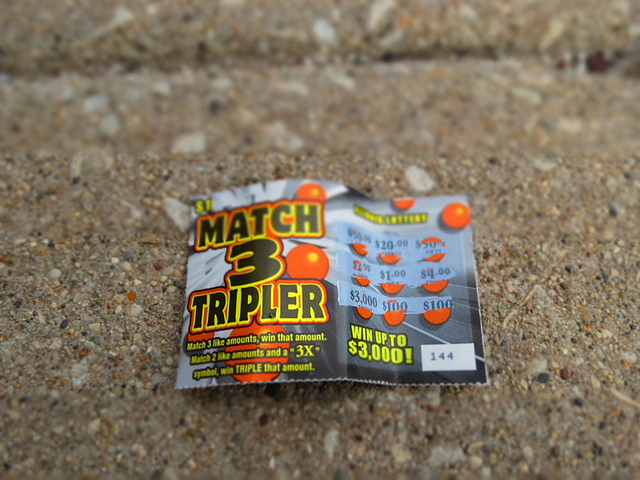Lawmakers Want An Investigation Into The Privatized Lotto That Gives Out Fewer Grand Prizes
By Emma G. Gallegos in News on Dec 14, 2016 2:00PM
State lawmakers are demanding an investigation into the recently-privatized state lottery after a recent investigation by the Chicago Tribune claimed that the lotto didn't award 40 percent of its flashy grand prizes.
In 2011, the state handed over lotto duties to the Northstar Lottery Group. There were some pros to this, including new games and more aggressive marketing. In some ways it worked: Players spent an extra $490 million each year and won an extra $340 million a year, on average, compared to the system run by the state. Part of Northstar's aggressive marketing included promising big grand prizes, but many were never given out, according to the Tribune. Northstar printed out more scratch-offs than it could sell, and it often canceled games earlier than anticipated—and before big winners could be awarded.
The Tribune checked out the numbers for prizes over $1 million. In Illinois, 59.6 percent were awarded. Compare that to New York where the rate was 80 percent, Pennsylvania's 83 percent.
Northstar claims that players' rates of winning weren't at all affected by canceling games early. But the low rates of big payouts left a bad taste in the mouth of players, and state lawmakers from both sides of the aisle. State Sen. Terry Link, D-Waukegan, state Rep. Scott Drury, D-Highwood, and state Rep. David McSweeney, R- Barrington Hills have called for legislative hearings into Illinois' management of scratch-off games.
"I just don't think we should promise people things we don't deliver," said state Rep. Lou Lang, D-Skokie, according to the Chicago Tribune. "And if we say we have a game that's going to pay X and it doesn't pay X, then we've lied to the people who bought the tickets."
Scientific Games, one of the vendors who works with Northstar, told the Tribune it would cooperate with any investigation into its management of the lottery.
"Scientific Games has served the State of Illinois for more than 40 years, generating billions of dollars for its citizens," company spokeswoman Susan Cartwright said in a written statement Monday. "Scientific Games encourages any review by the responsible public officials of state-regulated gaming operations and pledges its full cooperation with any review."
Even if you're not a player, the management of the lotto system can affect you, the Illinois taxpayer, since the state is so reliant on the lottery for revenue. If the game gets a reputation for being unfair, that could be bad news for the state budget.
"If the players are not treated fairly, then they'll stop buying it, and then we'll lose money," said Senate President John Cullerton, D-Chicago, told the Tribune.
